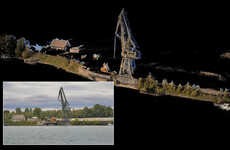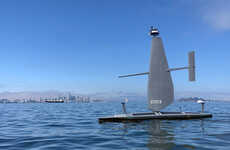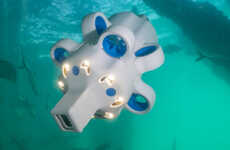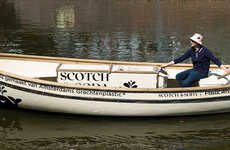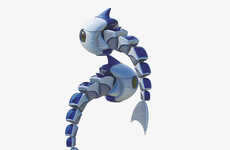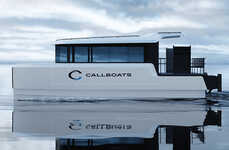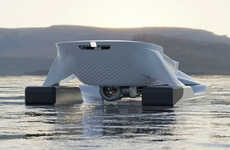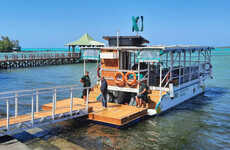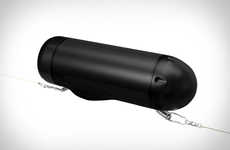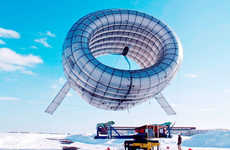
These Crocodile-Shaped Boats are Used to Study Hippopotamus Poop
Rahul Kalvapalle — May 27, 2014 — Tech
References: senseplatypus & gizmag
Researchers at Yale University and the Cary Institute of Ecosystem Studies are using autonomous crocodile-shaped boats to study the effects of hippopotamus dung on water quality in Kenya's Mara River. The reason for using disguised boats is simple -- hippos are extremely aggressive animals that kill more people in Africa each year than any other animal.
The vacuum-formed plastic boats are 0.6 meter long and weigh 6 kg. They are equipped with Android processors that allow them to navigate the water autonomously, using sensors to analyze different water properties such as oxygen content and temperature. They even have sonar sensors that help them assess the depth of pools and to document the location of hippo poop.
The vacuum-formed plastic boats are 0.6 meter long and weigh 6 kg. They are equipped with Android processors that allow them to navigate the water autonomously, using sensors to analyze different water properties such as oxygen content and temperature. They even have sonar sensors that help them assess the depth of pools and to document the location of hippo poop.
Trend Themes
1. Autonomous Watercraft - Disruptive innovation opportunity: Develop more advanced autonomous watercraft for conducting research and data collection in challenging environments.
2. Environmental Monitoring - Disruptive innovation opportunity: Create innovative sensor technologies and data analysis methods for monitoring water quality and studying the environmental impacts of animal waste.
3. Safety-enhancing Technologies - Disruptive innovation opportunity: Design safety-enhancing technologies, such as disguised or remote-controlled vehicles, to conduct research in hazardous or hostile environments.
Industry Implications
1. Research & Development - Disruptive innovation opportunity: Apply autonomous boat technology to various research fields, including ecology, marine biology, and environmental science.
2. Ecotourism - Disruptive innovation opportunity: Develop unique and immersive ecotourism experiences using unmanned watercraft to observe and study wildlife in their natural habitats.
3. Water Management - Disruptive innovation opportunity: Implement autonomous boats equipped with advanced sensors for real-time water quality monitoring and pollution control in lakes, rivers, and coastal areas.
3.1
Score
Popularity
Activity
Freshness

